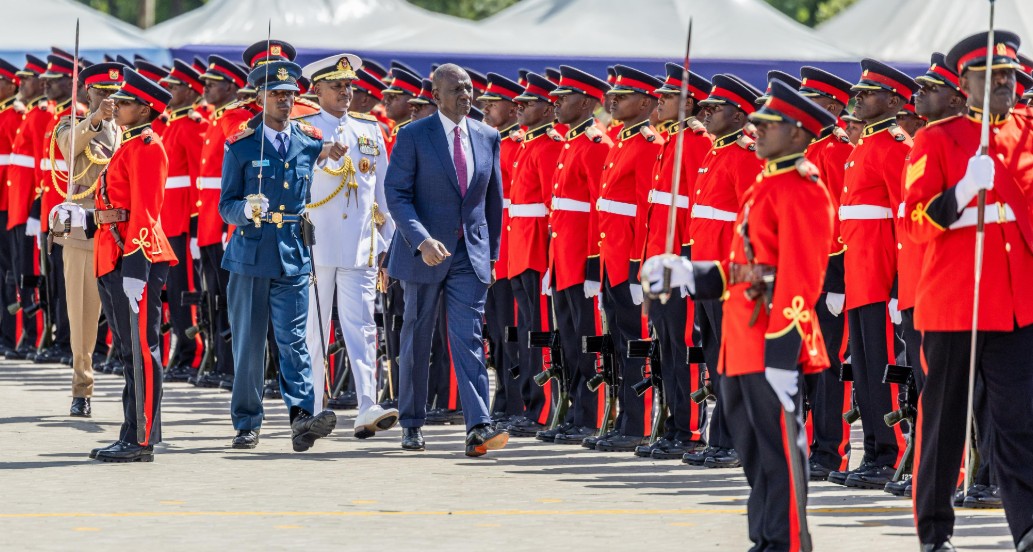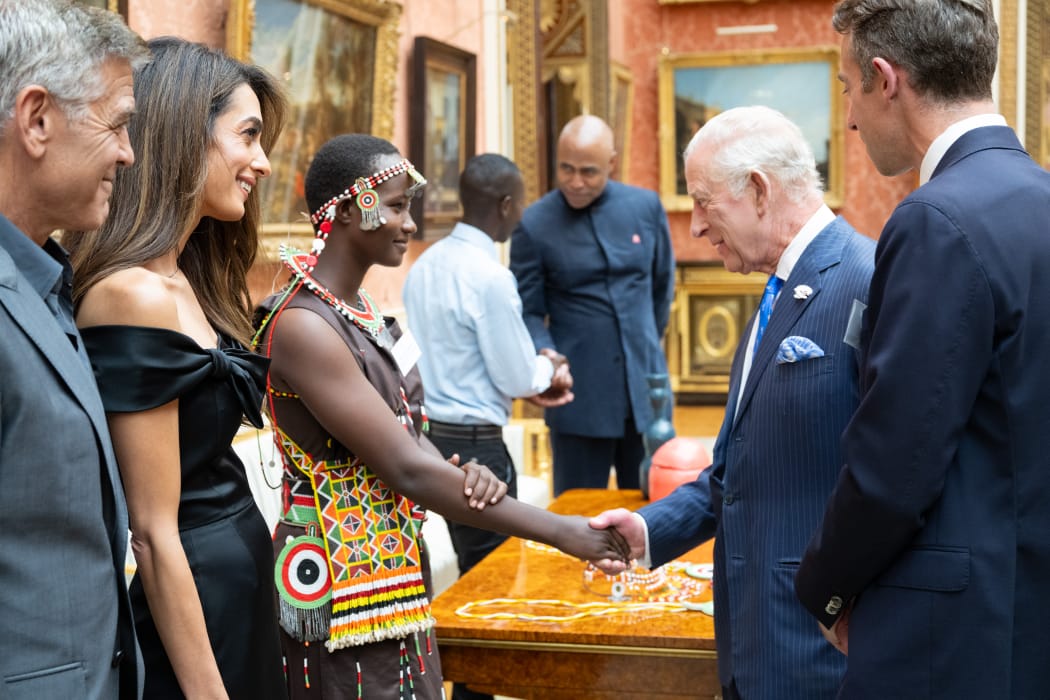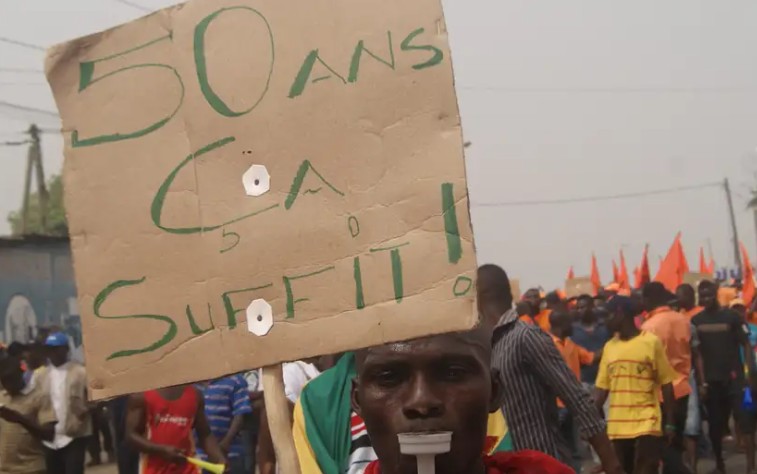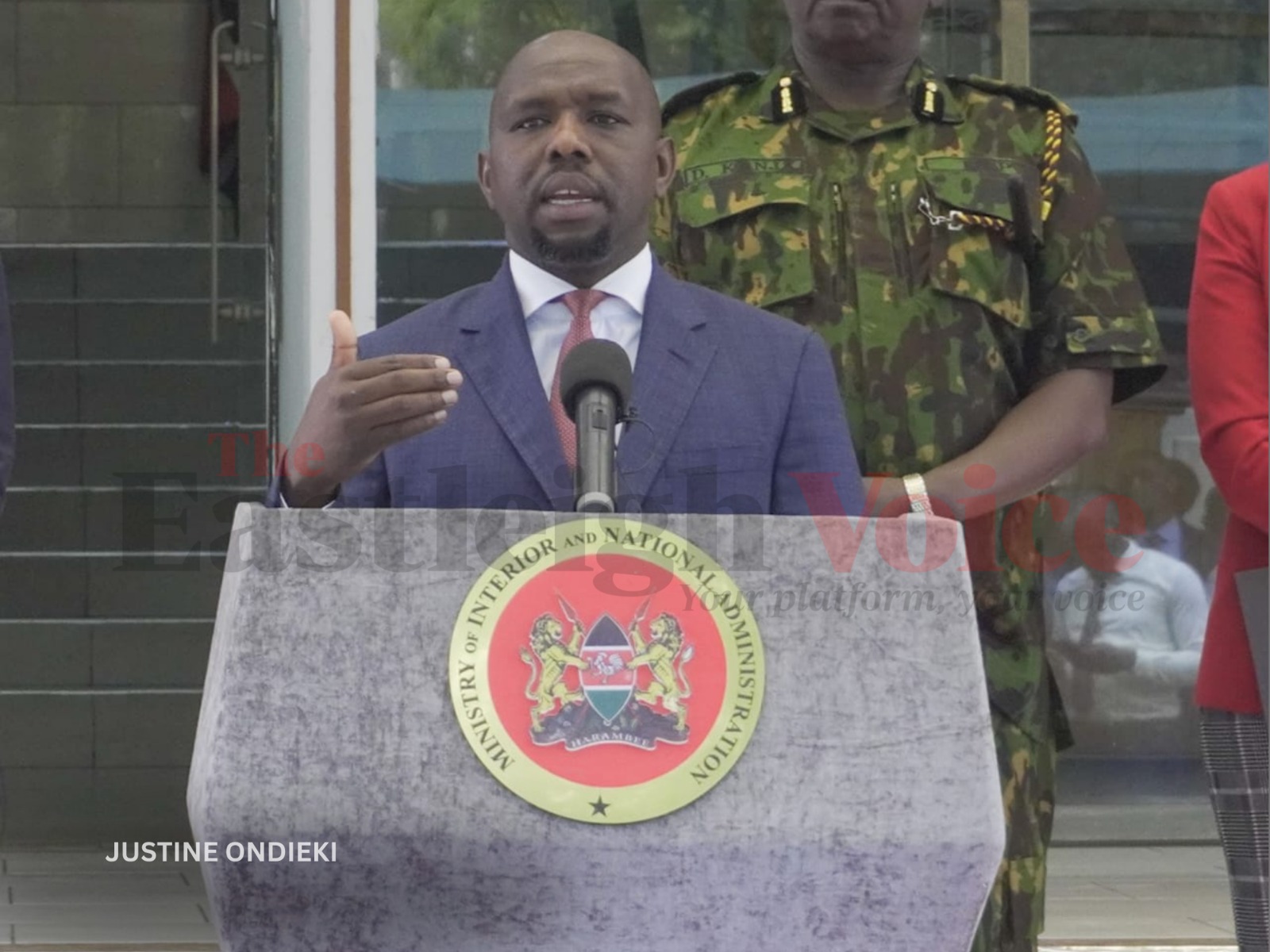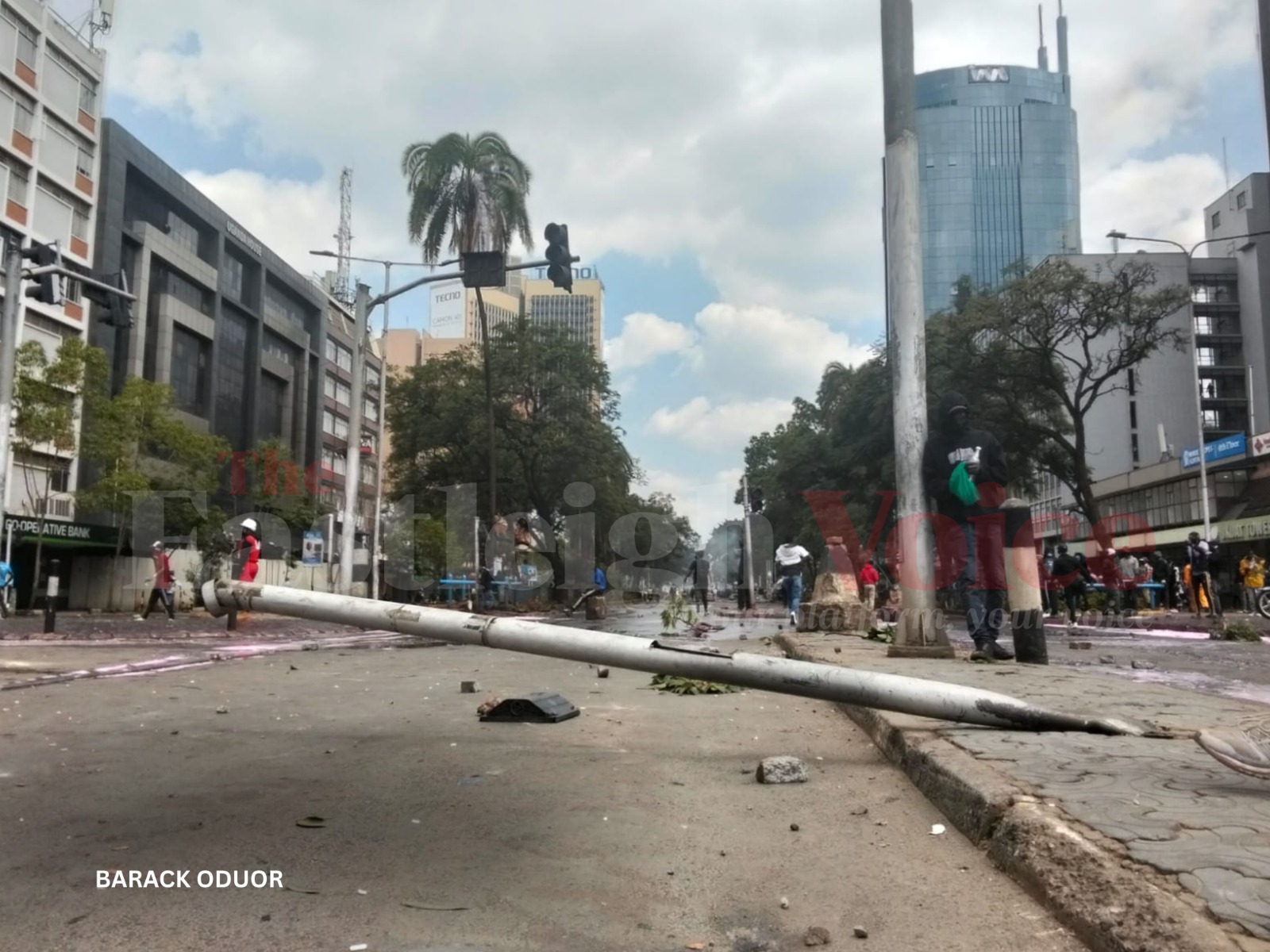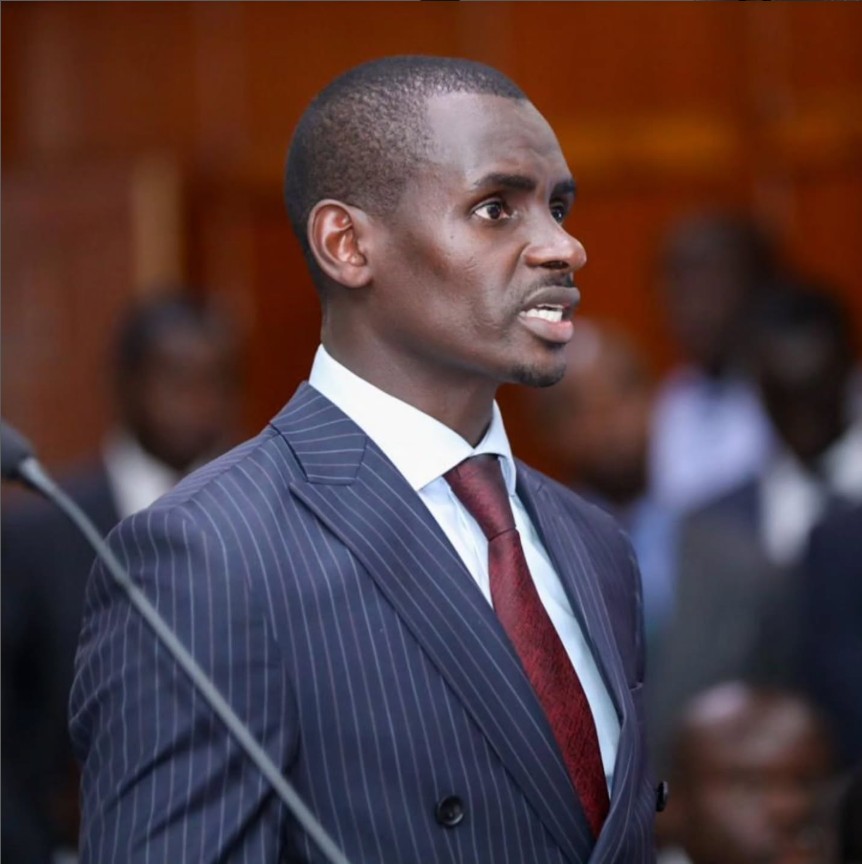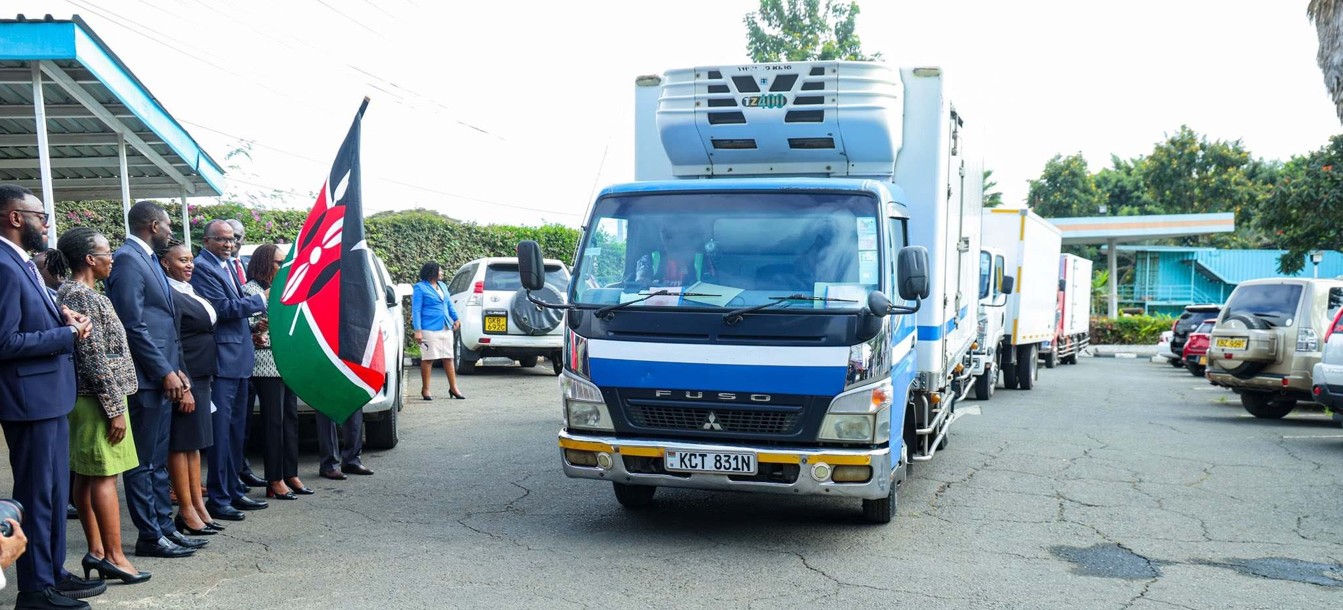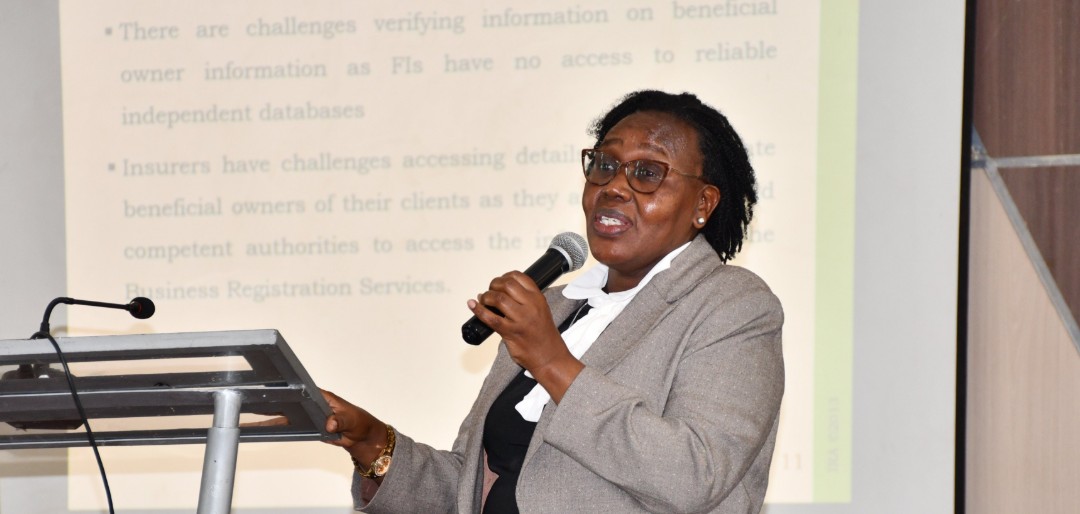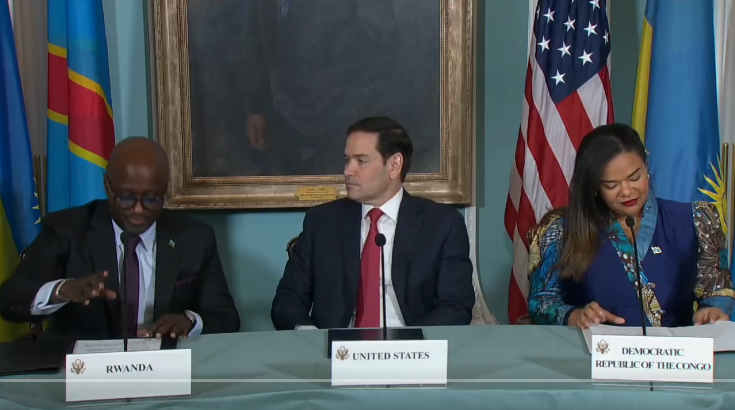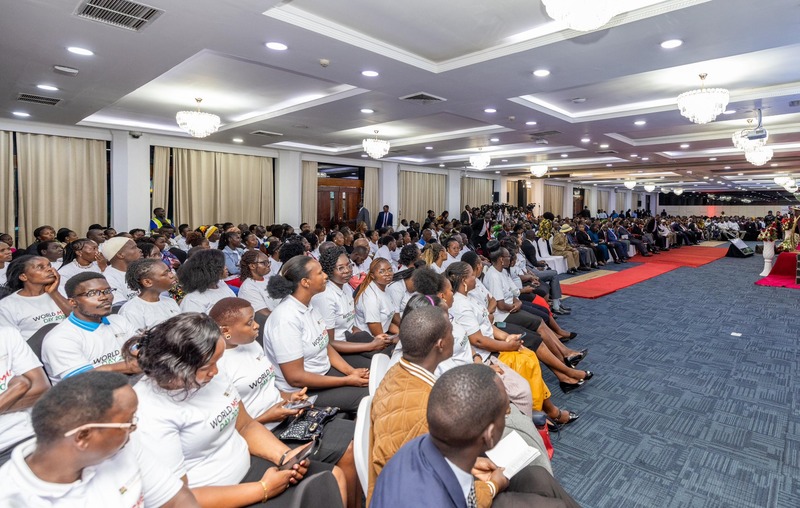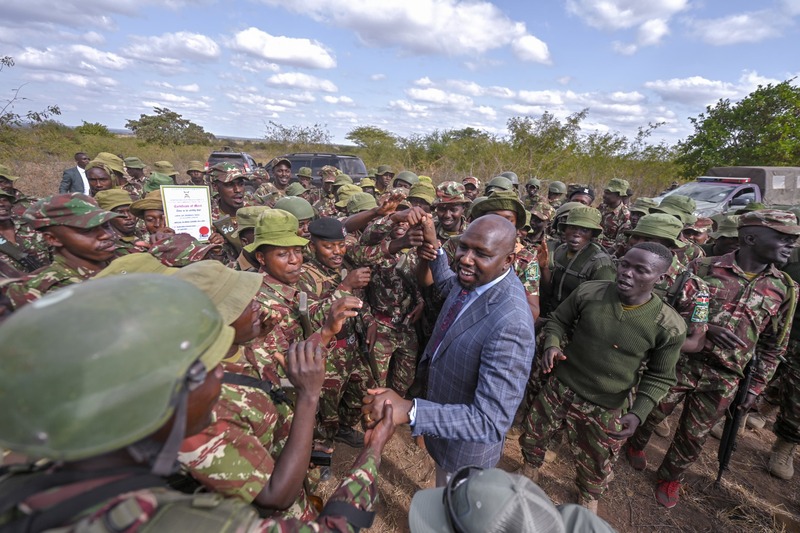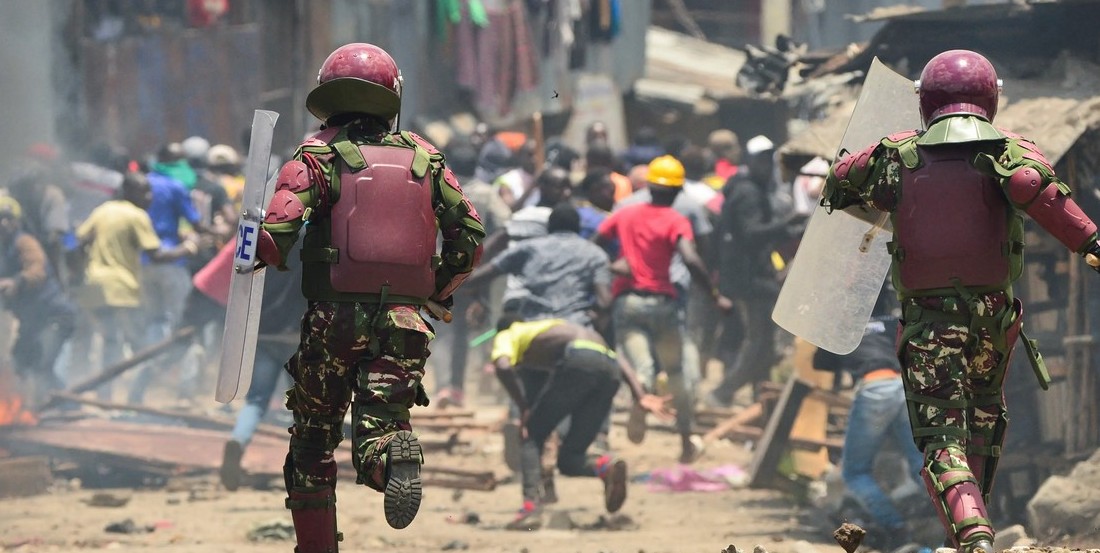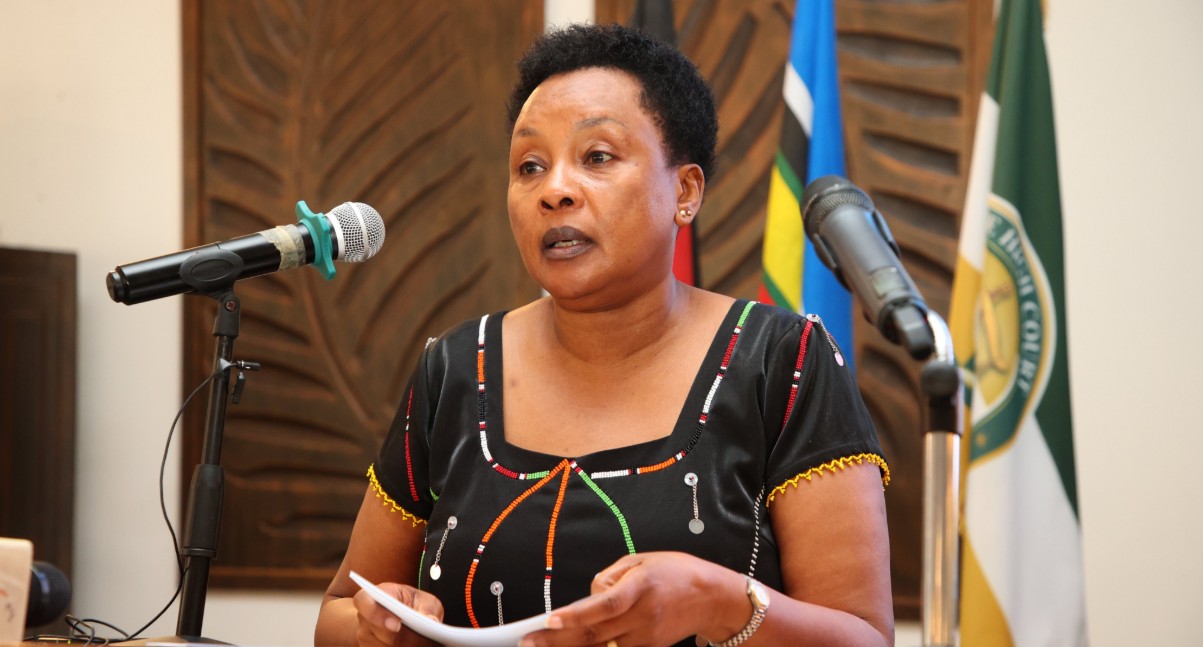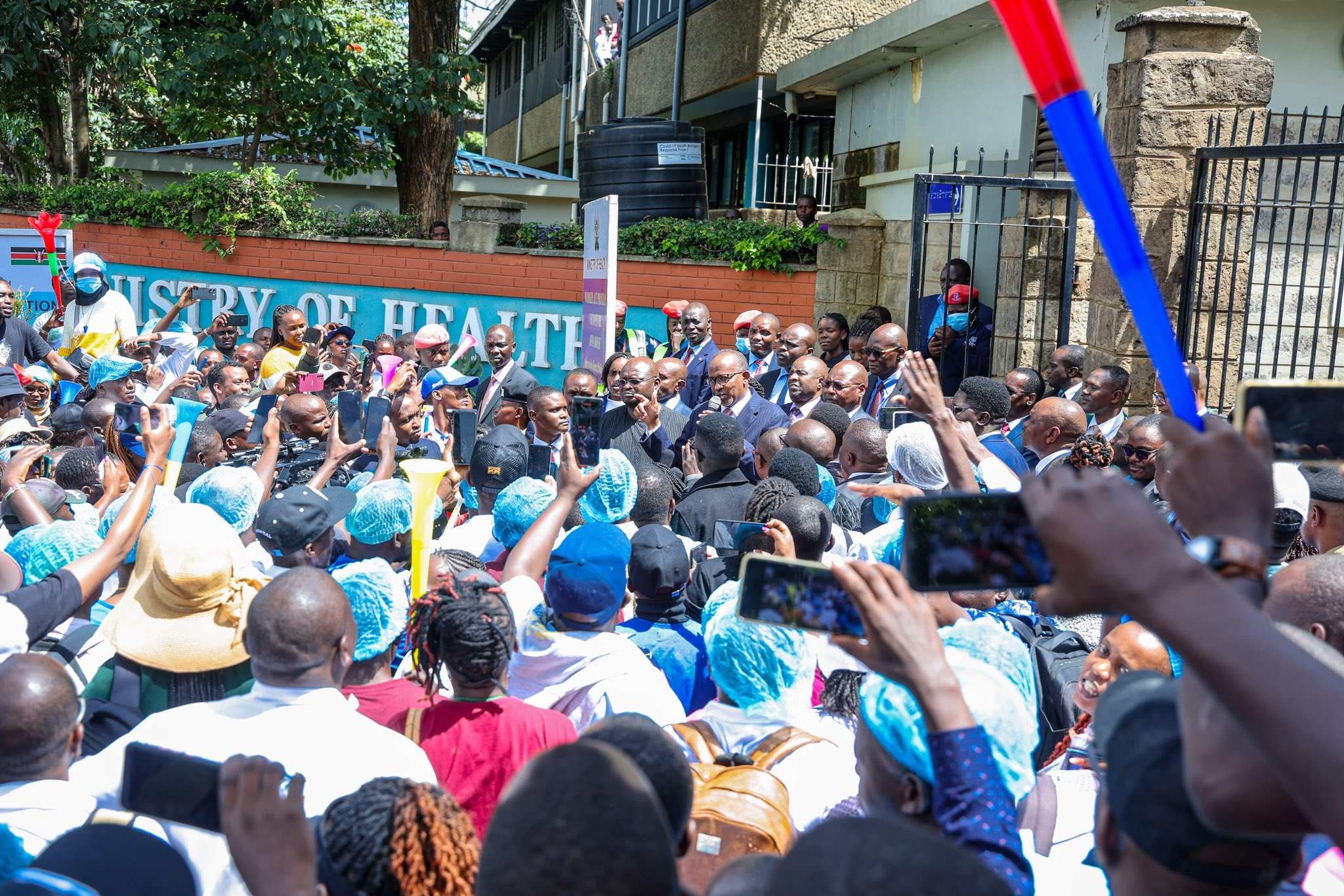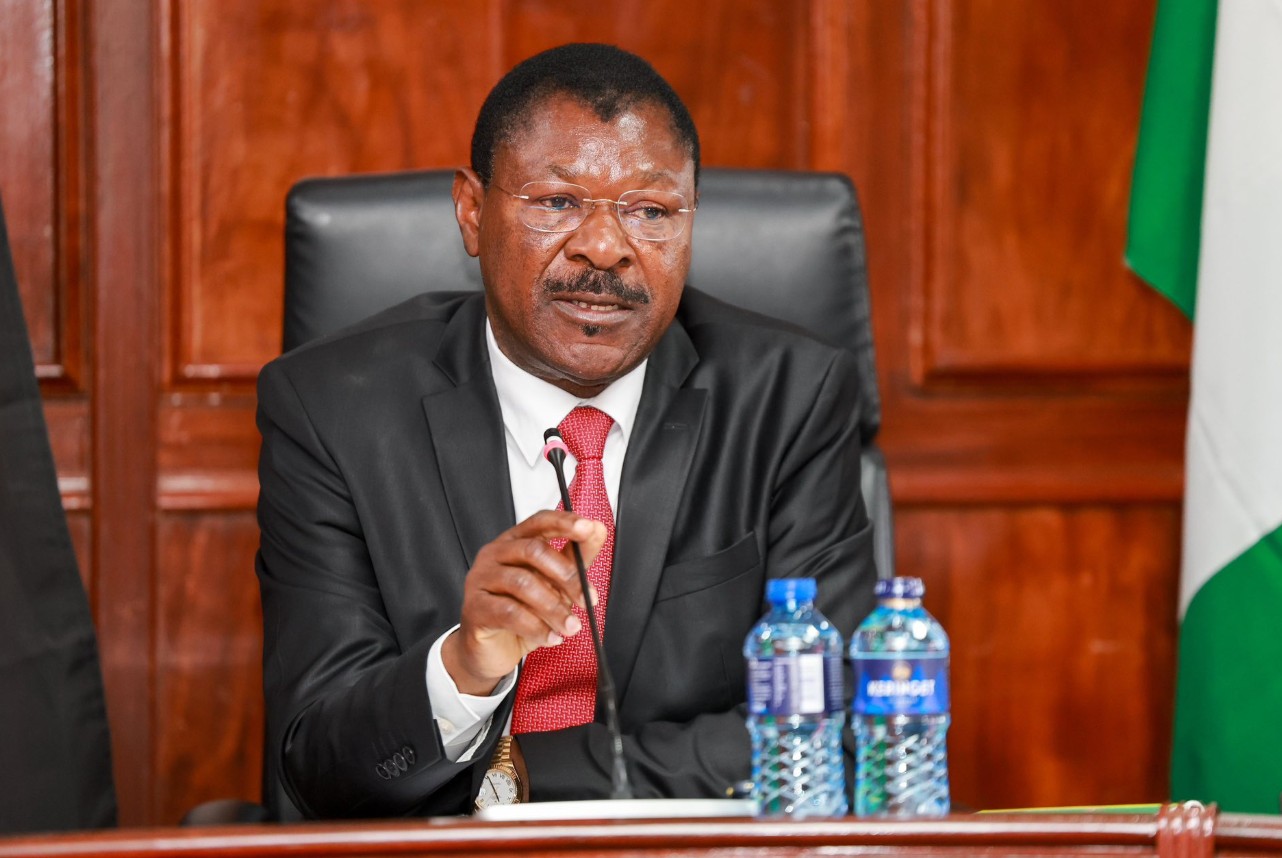Maraga Taskforce offers solutions to improve poor police-public relations

The recommendations from the Taskforce propose actions aimed at improving police conduct by benchmarking against regional and international standards
The relationship between the public and the police has been tense for some time, a situation worsened by the security agencies’ response to the Gen Z protests that erupted in June this year.
In the ensuing months, reports emerged of individuals linked to the planning of these protests being abducted, with some later confessing to having been tortured and abandoned in the bush, told to find their way home.
More To Read
- Ruto: You can't save the country by burning it, if you want me to go, show me your plan
- Traders count millions in losses after protest looting and arson across Kenya
- Protests: MSF, emergency responders treat 605 for gunshots, stabbings, rape and other injuries in Nairobi
- Eight killed, 400 injured in protest anniversary as rights groups decry police brutality, media gag
- Defiant youth storm streets to mark first anniversary of deadly 2024 protests
- Communications Authority shuts down TV signals over protest coverage in major crackdown on press freedom
This further deteriorated public trust and raised concerns over the police’s adherence to their commitment to transition from a force to a service, igniting widespread anti-police sentiments across the country.
However, the Justice Maraga Taskforce on police reforms offers a glimmer of hope, advocating for increased accountability and professionalism within the service.
Part of the recommendations envisioned in this regard suggested actions that could help improve police conduct in the country through benchmarking with regional and international standards and exchange programmes that enable the service to keep up with emerging policing changes and trends in other jurisdictions and improve their knowledge and skills.
In particular, the Taskforce recommended collaborations with the police services of countries with which Kenya shares cooperation agreements, including the United States, the United Kingdom, Japan, Canada, and Italy.
Notably, it pointed to the Police Force of England, renowned as the most transparent police force in the world, credited for its proactive, inclusive, and flexible approach to policing.
The Canadian Police Force was highlighted for its adeptness in preparing for unpredictable situations, having established structures to equip its officers in advance. The police force of the Netherlands was also commended for its discipline and the harmonious collaboration among its units.
"These officers are deployed to oversee the day-to-day affairs of citizens and to combat crime, and they perform this duty with cheerfulness. The method of policing employed by the officers is that of proactivity to prevent crime even before it happens," the report states.
Other forces mentioned include the French police, where every officer is trained to disarm bombs; the Japanese National Police; and the US Police Force, particularly the New York Police Department, known for their rapid response in emergencies. The Australian Police Force has made strides in incorporating more women into the ranks to address the issue of female molestation.
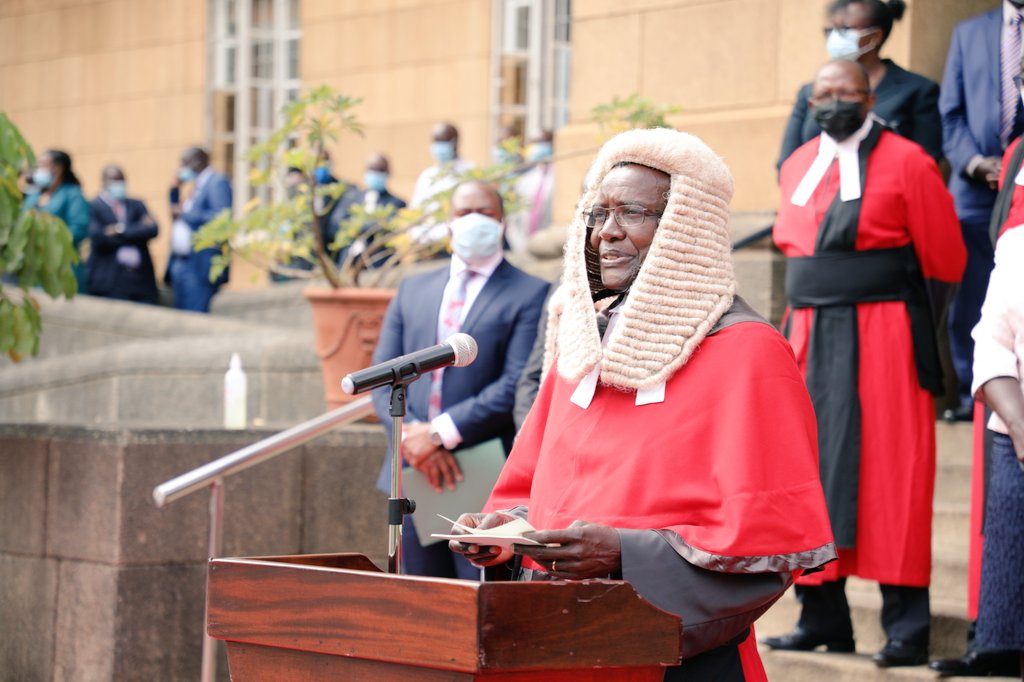 Chief Justice (Emeritus) David Maraga. Photo:X/dkmaraga
Chief Justice (Emeritus) David Maraga. Photo:X/dkmaraga
These recommendations are grounded in the 2017 report by the World Internal Security and Police Index (WISPI), which assesses police services on their ability to manage internal security effectively.
A month after the protests, a report from human rights organisations indicated a failure on the part of the police to mitigate harm during the protests at parliament.
"The parliament protest was announced several days in advance. Authorities had adequate time to facilitate the protest and minimise the potential for injury to any person and damage to property. Precautionary measures, for example, by cordoning off parliament buildings while facilitating the protests nearby, should have been taken. Videos show that police neither formed a clear cordon around parliament nor facilitated the protesters," the report stated.
Such proactive measures can be learnt through benchmarking and exchange programmes with the aforementioned countries.
The report urged the Inspector-General of Police (IG) to develop a comprehensive policy to regulate these programmes within 12 months of the report's adoption.
This initiative should ensure equity and fairness in offering opportunities to all members of the service, including junior officers. Those participating in benchmarking or exchange programmes would be required to prepare and submit reports and, wherever possible, sensitise other members of the service on the knowledge gained.
"The leadership of the service should prohibit misuse of benchmarking opportunities where the same people are overexposed at the expense of others. The IG should establish, maintain, and keep an updated database of those who have been previously exposed to benchmarking and exchange programmes," the report added.
Finally, the report calls on the IG to establish a monitoring and evaluation strategy to assess the efficacy of the benchmarking and exchange programme and ensure its continued improvement.
Top Stories Today
Reader Comments
Trending
